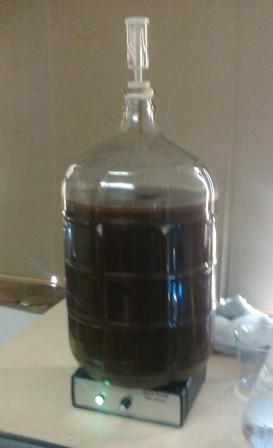So I was talking with a few microbiologists over Christmas while they were trying my homebrew. Apparently the bioreactors that produce cell cultures and enzymes for many genetic drugs are stirred. They were perplexed that beer wasn't stirred - oxidation or outside infection would do at least as much damage to their product as it does to ours. Therefore if it works in a properly controlled bioreactor, it would work in a fermenter.
I'm not convinced this is the case, and keeping the beer properly free of O2 during stirring sounds very expensive. So does sterilization of all those moving parts (sanitation probably wouldn't be sufficient)
Thoughts?
P.S. - you can blame the magic bean for this question ;p.
I'm not convinced this is the case, and keeping the beer properly free of O2 during stirring sounds very expensive. So does sterilization of all those moving parts (sanitation probably wouldn't be sufficient)
Thoughts?
P.S. - you can blame the magic bean for this question ;p.



